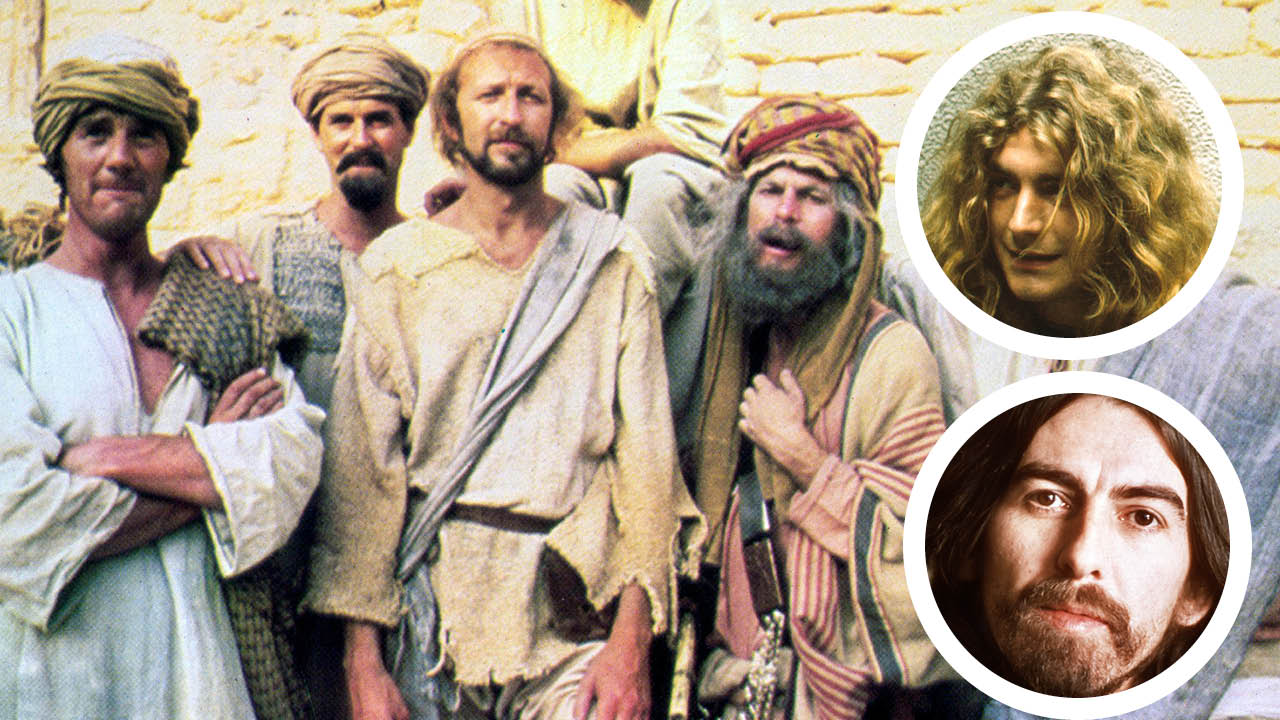From farcical mechanisms for supreme executive power to the average speed of an unladen swallow, Monty Python And The Holy Grail has become part of the cultural lexicon. It might be a silly film for silly people but, nearly 50 years after its release it remains an eminently quotable and enduring comedy classic. But it and the iconic British comedy team’s follow-up The Life Of Brian might not have got off the ground if it wasn’t for funding from some of the world’s biggest rock stars.
Monty Python’s 1971’s And Now for Something Completely Different was bankrolled by Playboy′s UK executive Victor Lownes. It was a moderate success in the UK, even if it failed in its aim of breaking the troupe in the US. It was also a reworking of sketches from the first two series of the TV show Monty Python's Flying Circus. When they came to touting the script for the film that would become Monty Python And The Holy Grail, nobody wanted to know.
Asked by The Guardian in 2002 if there had been any studio interference in the film, director/animator and Python team member Terry Gilliam replied that there was no interference because no studio would give them any money.
“This was at the time income tax was running as high as 90%, so we turned to rock stars for finance,” he continued. “Elton John, Pink Floyd, Led Zeppelin, they all had money, they knew our work and we seemed a good tax write-off. Except, of course we weren't. It was like [Mel Brooks satire] The Producers.”
More recently Eric Idle, Python mainstay and one-time member of parody rock band The Rutles, offered up more details. In a 2021 tweet he revealed that Led Zeppelin had stumped up £31,500, Pink Floyd had contributed £21,000 and Jethro Tull frontman Ian Anderson provided a further £6,300. Allowing for inflation this would be equivalent to around £285,000, £190,000 and £57,000 respectively.
Idle made no mention of Elton John but listed other backers including producer Michael White, who put in the biggest sum with £78,750. A number of record labels chipped in, with Island Records (£21,000), Chrysalis (£6,300) and Charisma Records (£5,250) all contributing. The final backer was musical theatre lyricist and Andrew Lloyd Webber collaborator Tim Rice’s private cricket team!
According to Idle, none of the famous backers visited the sets – many of which were shot in the rain, mud and cold in Scotland – although Led Zeppelin’s Robert Plant and Jimmy Page did hang out with the cast at the premiere in London. Within three years Monty Python And The Holy Grail had brought in more than £2.3m and it would go on to generate much more than that through home media and re-releases. Despite this, the Python crew once more found themselves in need of funding when they came to make 1979’s button-pushing Biblical satire Life Of Brian.
“Originally, we had the money from EMI for this film,” recalled Terry Gilliam. “It was, I believe, the Thursday before the crew was leaving [to start filming], we got the news that EMI had pulled out because apparently [film executive] Lord Bernie Delfont had finally got around to reading the script, decided it was blasphemous, and didn’t want his company to be involved in it … Everything was canceled.”
Enter George Harrison, Python fanatic and close friend of Eric Idle. Idle and producer John Goldstone went to see Harrison at his home in the Hollywood Hills and the former Beatles man promised to pay for the whole thing. "I can't remember whether he'd read the script already or not,” Goldstone told The Guardian in 2003. “It didn't really seem to matter. I just couldn't believe it. I felt… rock’n’rollers, no sense of reality at all."
That was the start of Harrison’s film production and distribution company HandMade Films, which would also be involved in future cult classics including Time Bandits, Withnail and I and How to Get Ahead in Advertising. At the time though, even a wealthy one-time Beatle had to take rather extreme measures to raise the cash. As Idle told Rolling Stone in 2018: “Nobody wanted …Brian except George, who put up his money for it. We wouldn’t have made it but for him mortgaging his house.”
